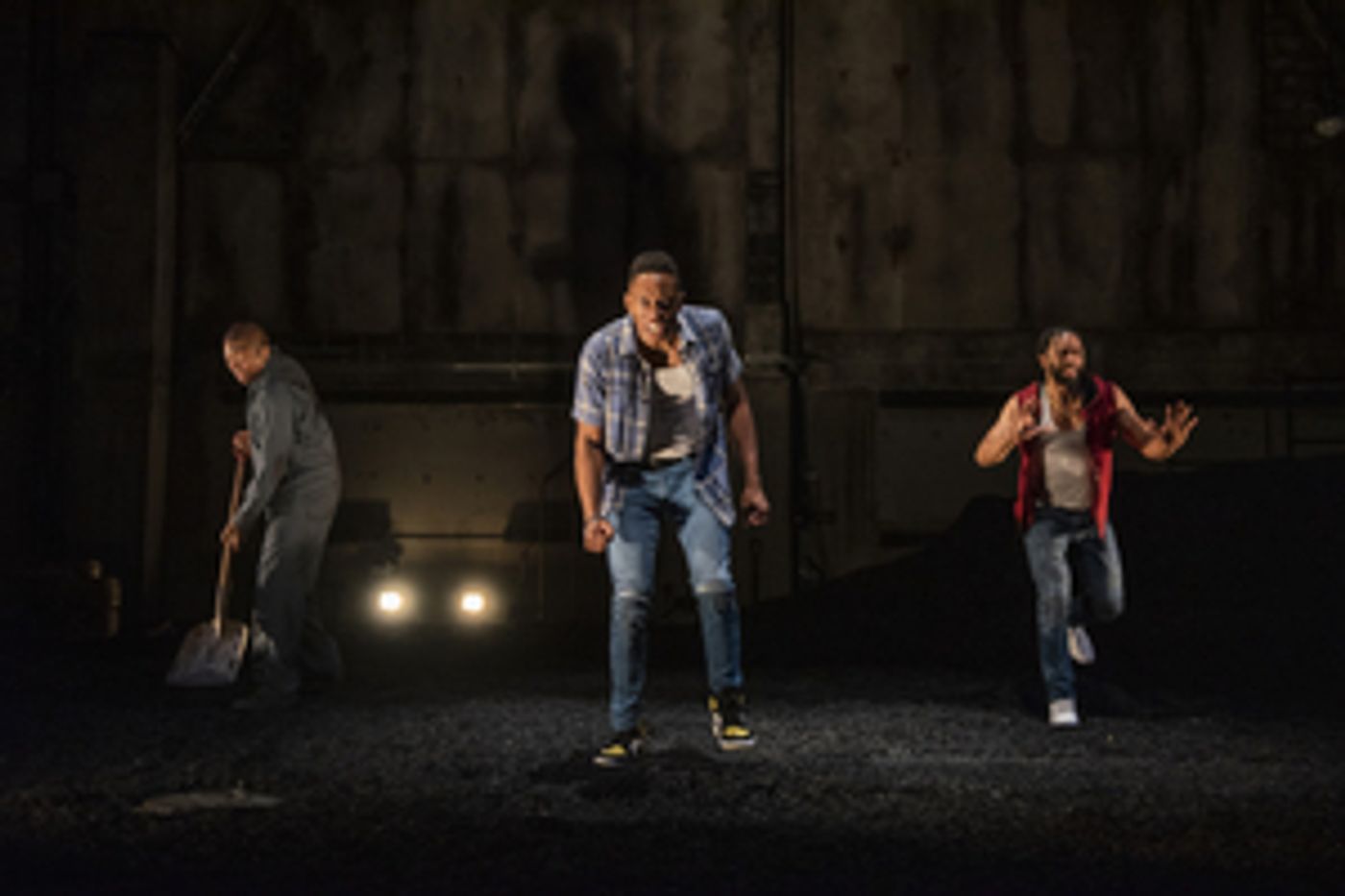Review: THE BROTHERS SIZE at Steppenwolf Theatre Company

The first Steppenwolf for Young Adults production of the season marks the return of Tarrell Alvin McCraney's THE BROTHERS SIZE to the theater's stage. McCraney wrote the play in 2007 and it had its Steppenwolf debut in 2010. In this new production with direction from Monty Cole, the piece's exploration of brotherhood and the ties that bind remains no less relevant.
THE BROTHERS SIZE centers on Ogun and Ochoosi Size, who are trying to renavigate their sibling relationship following Ochoosi's release from prison. Though the seemingly carefree Ochoosi (Patrick Agada) seems to be enjoying his newfound freedom, the play's events slowly reveal that his incarceration will have lasting implications-in part due to the racism inherent in the justice system. Ogun (Manny Buckley) experiences a different kind of imprisonment as he feels bound to support his brother in any way possible. McCraney paints the brothers' dynamic as one rooted in love, but it becomes clear that Ogun and Ochoosi do not necessarily like one another. The presence of Ochoosi's close friend Elegba (Rashaad Hall) only complicates matters. Because Elegba and Ochoosi met in prison, Elegba represents a kind of comfort to him-a port in the storm of incarceration. Yet Ogun becomes wary of Elegba and the influence he might have on Ochoosi. By setting up this three-pronged dynamic, McCraney can beautifully explore the tension between the obligations we feel to our own flesh and blood and those of our chosen family. And in the case of Ogun, he must grapple with what it means to come face-to-face with Elegba: Must he also embrace Elegba as a brother, or is he right to question his influence on Ochoosi?
Though THE BROTHERS SIZE is set in San Pere, Louisiana, the play's design and storytelling elements give it a sense of universality. In constructing the dialogue, McCraney drew on the conventions of Yoruba cosmology. The characters are not only named for Yoruba deities, but McCraney also adopts elements of Yoruba storytelling that give the play its explicit narrative quality. Frequently, the characters will narrate their actions, marking their entrances and exits or emotional states in the dialogue. The technique never feels redundant, but rather lends a unique rhythm to the sequence of events. McCraney's text has its own natural cadence, which is further emphasized by the incorporation of music into the staging. For example, in a later scene, Ochoosi spontaneously launches into Otis Redding's "Try A Little Tenderness," while Ogun accompanies him. The moment not only speaks to the inextricable bond between the two brothers, but also to their connection to wider black culture in the United States. It's a moment that is both specific and universal, very much in conversation with the play's mythic qualities.
Yu Shibagaki's set design visually reflects the heart of THE BROTHERS SIZE. The expansive, sparsely decorated set has a floor covered with pieces of shredded rubber; the smell of new tires greets audiences at they enter the theater. Throughout the play, Ochoosi and Ogun toil away at the floor, which becomes a poignant symbol of their respective feelings of imprisonment. The use of rubber also reflects Ogun's chosen career as a car mechanic. The simplistic set design feels understated yet powerful at the same time. Rasean Davonte Johnson's projection designs also add to the simultaneous dynamic of the larger-than-life storytelling and the intimacy of the characters' experiences.
The performances further enliven McCraney's artful text. Buckley has a grounded energy as Ogun, and he easily displays his character's desire to protect his younger brother. Agada captures Ochoosi's easygoing energy in a believable manner, without making it too overstated. Buckely and Agada together create a convincing yin-and-yang dynamic as the two brothers, which underscores the sibling tension. Hall plays Elegba with a glint in his eye, hinting at the manipulative tendencies that lie just below his character's surface.
THE BROTHERS SIZE is an artful exploration of the obligations put upon its characters. McCraney beautifully reflects on both the societal systems that oppress these three black men, while also deepening the exploration of the personal obligations they feel to one another-and the question of what it means to be part of a brotherhood, whether biological or chosen.
Public performances of THE BROTHERS SIZE run through Saturday, October 19 in the Downstairs Theatre at Steppenwolf Theatre Company, 1650 North Halsted. Tickets are $20-$30. Visit Steppenwolf.org or call 312.335.1650.
Photo Credit: Michael Brosilow
Review by Rachel Weinberg
Reader Reviews
Videos

